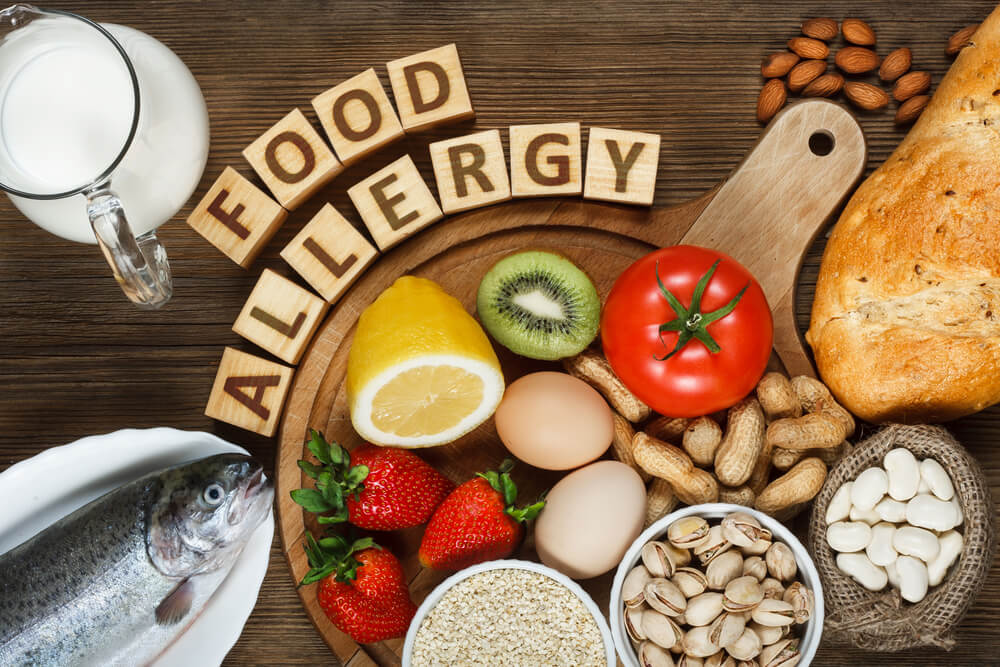Food allergies affect millions of people worldwide, and raising awareness and promoting understanding of these potentially life-threatening conditions is crucial. Food Allergy Awareness Month, observed annually in May, serves as a vital platform for educating individuals, communities, and healthcare professionals about the prevalence, symptoms, and management of food allergies. In this blog post, PEMC of Florida experts will delve into the significance of Food Allergy Awareness Month and explore common food allergies, allergen labeling, symptoms, and what to do if you have an allergic reaction.
What Is Food Allergy Awareness Month?
Food Allergy Awareness Month, celebrated every May, is an initiative aimed at increasing public knowledge and understanding of common food allergies. It serves as a crucial reminder to individuals, schools, workplaces, and communities to support and accommodate individuals with food allergies, creating a safer and more inclusive environment. By fostering awareness, this month-long campaign strives to improve the quality of life for those affected by food allergies and promote empathy and compassion within society.
How to Observe Food Allergy Awareness Month?

Observing Food Allergy Awareness Month can be done in various ways, both individually and collectively. Here are some impactful ways to participate:
- Educate Yourself: Take the time to learn about food allergies, their causes, and the potential risks associated with them. Familiarize yourself with major food allergens and how to identify them.
- Share Knowledge: Spread awareness by sharing accurate and reliable information about food allergies with your family, friends, and community. Utilize social media platforms, organize educational events, or distribute informative brochures.
- Support Fundraisers: Participate in or organize fundraising events to support research, advocacy groups, and organizations working towards improving the lives of individuals with food allergies.
- Promote Allergy-Friendly Options: Encourage local businesses, restaurants, and schools to offer allergy-friendly alternatives and create a safe dining environment for individuals with food allergies.
- Advocate for Policy Changes: Engage with local representatives and policymakers to advocate for better food labeling laws, improved food allergy management in schools, and increased accessibility to life-saving medications like epinephrine auto-injectors.
What Are Major Food Allergens?
Food allergies can be triggered by a range of substances, but there are eight major food allergens recognized by the United States Food and Drug Administration (FDA):
- Milk: Dairy products and derivatives, such as cheese, butter, and yogurt.
- Eggs: Found in various forms, including baked goods, sauces, and dressings.
- Fish: Common allergens include salmon, tuna, and halibut.
- Shellfish: Includes shrimp, lobster, and crab.
- Tree Nuts: Walnuts, almonds, cashews, and pistachios fall into this category.
- Peanuts: Legumes that are often used in processed foods and snacks.
- Wheat: Found in bread, pasta, and many baked goods.
- Soy: Commonly found in processed foods, sauces, and vegetable oils.
Allergen Labeling
To protect individuals with food allergies, regulatory bodies enforce precise labeling requirements for packaged food products. Manufacturers are required to disclose the presence of major food allergens on their labels to help consumers make informed choices and avoid potential allergens.
The FDA mandates that food labels must clearly identify the presence of any major food allergens in the product. This includes using plain language to list the specific allergen within the ingredient list or providing a separate “Contains” statement after the ingredient list. For example, a product containing milk would have an ingredient listed as “milk” or “contains milk” after the ingredient list.
Common Symptoms of Food Allergies
Recognizing the symptoms of food allergies is crucial for early identification and prompt intervention. Symptoms can vary from mild to severe and may manifest within minutes to a couple of hours after consuming the allergen. Common symptoms include:
- Skin Reactions: Itching, hives, eczema, redness, or swelling of the skin.
- Digestive Issues: Nausea, vomiting, abdominal pain, diarrhea, or bloating.
- Respiratory Problems: Sneezing, coughing, wheezing, shortness of breath, or nasal congestion.
- Cardiovascular Symptoms: Rapid heartbeat, low blood pressure, or fainting.
- Oral Symptoms: Tingling or itching sensation in the mouth, lips, or throat.
Food Allergies Can Be Life-Threatening
It’s important to note that common food allergies can escalate rapidly and lead to a severe allergic reaction called anaphylaxis. Anaphylaxis is a potentially life-threatening condition that requires immediate medical attention. Symptoms of anaphylaxis include:
- Difficulty breathing or swallowing
- Swelling of the lips, tongue, or throat, which can cause a blockage in the airways
- Severe drop in blood pressure
- Dizziness or loss of consciousness
- Chest tightness or persistent coughing
If any of these symptoms occur after consuming a specific food or ingredient, it is crucial to seek emergency medical assistance immediately.
What to Do If You Have an Allergic Reaction?
If you or someone you know experiences symptoms of a food allergy, it’s vital to take swift action. Here are the recommended steps:
- Administer Epinephrine: If prescribed, use an epinephrine auto-injector (e.g., EpiPen) immediately, following the instructions provided. Epinephrine can help reverse the severe symptoms of an allergic reaction and buy time until medical help arrives.
- Call Emergency Services: Dial emergency services or go to the nearest emergency room promptly, even if the symptoms appear to be subsiding. Medical professionals can monitor the individual and provide further treatment if necessary.
- Seek Follow-Up Care: After the initial reaction, it’s essential to consult with an allergist or immunologist for a comprehensive evaluation and to develop a personalized management plan for future incidents.
Reporting Adverse Reactions and Labeling Concerns

If you suspect an adverse reaction to a food product or have concerns about inaccurate allergen labeling, it’s crucial to report it to the appropriate authorities. In the United States, you can report food-related allergies and labeling concerns to the FDA through their online portal or contact their Consumer Complaint Coordinators for guidance.
Why Food Allergy Awareness Month Is Important
Food Allergy Awareness Month plays a vital role in educating individuals and communities about the significance of food allergies. By raising awareness, we can:
- Promote Understanding: Increased knowledge about food allergies fosters empathy and understanding, enabling individuals to support better and accommodate those with food allergies in various settings.
- Save Lives: Awareness campaigns emphasize the potentially life-threatening nature of food allergies, encouraging prompt recognition and appropriate actions in case of an allergic reaction, ultimately saving lives.
- Advocate for Change: Food Allergy Awareness Month provides a platform to advocate for policy changes, improved food labeling laws, and enhanced allergen management in schools, workplaces, and public spaces.
- Reduce Stigma: By dispelling misconceptions and promoting accurate information, Food Allergy Awareness Month helps reduce the stigma associated with food allergies, ensuring individuals feel supported and understood.
Food Allergy Awareness Month serves as a crucial reminder of the prevalence and impact of food allergies. By observing this month and educating ourselves and others, we can create a safer and more inclusive environment for individuals with food allergies.


